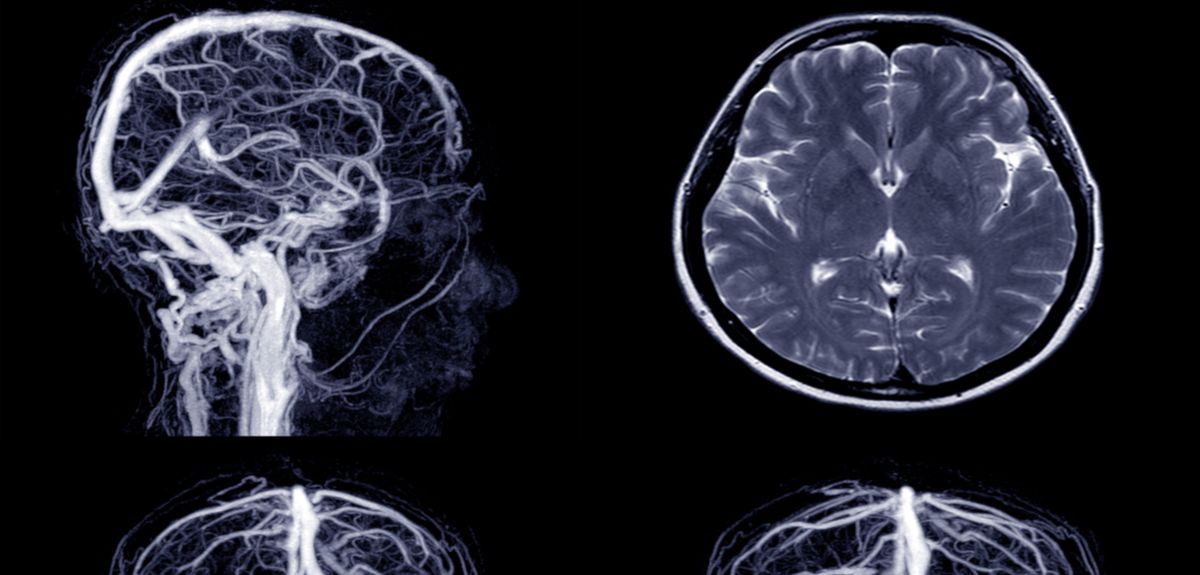
Image credit: Shutterstock
More awareness needed about stroke risk after mini-stroke
A leading Oxford stroke specialist says more needs to be done to raise of awareness of the need to take rapid action after a mini-stroke in order to reduce the number of major strokes.
The study of more than 2,200 patients across Oxfordshire was led by Professor Peter Rothwell, of the Nuffield Department of Clinical Neurosciences and Stroke Theme Lead for the NIHR Oxford Biomedical Research Centre.
It looked at the association of the FAST [Face-Arms-Speech-Time] public education campaign with delays and failure to seek medical attention after a transient ischemic attack (TIA), or mini-stroke.
Previous research by Professor Rothwell has shown that the risk of major stroke is high after a TIA, and that quick medical attention can substantially reduce that risk. However, patients often fail to recognise or act on their symptoms.
Professor Rothwell said: 'The FAST campaign has been successful in getting people to respond quickly to the symptoms of major strokes, but our research has found that this public awareness campaign has not improved the response to minor stroke and TIAs. Many people ignore these more minor warning symptoms and subsequently suffer major strokes that would have been preventable.
'We believe that the ongoing public awareness campaign should also focus on the less severe symptoms that are typical of a mini-stroke, to help people to also understand their significance.'
Background
Every year around 150,000 people in the UK have a stroke; that's one every five minutes. Many of these strokes occur in people who have previously had a TIA.
Previously, the extent to which these more minor ‘warning’ events directly precede a major stroke was not fully appreciated. Clinical guidelines recommended that they be investigated and treated, but suggested that this could be done over four weeks.
Research conducted by Professor Rothwell and his team showed that the risk of a major stroke in the first few hours and day after a TIA had been greatly underestimated. They found that the risk of a major stroke within seven days of a minor event was consistently as high as 10%.
The 2007 Department of Health Stroke Strategy and many other national and international guidelines subsequently endorsed Professor Rothwell’s assertion that a mini-stroke should be treated as a medical emergency.
Professor Rothwell’s team developed a simple system to identify which TIA patients were most at risk of a major stroke and prioritise them for treatment. This system has been widely adopted in the UK and in international guidelines, which recommend assessment of high risk individuals with 24 hours.
The team also demonstrated, through its EXPRESS [Emergency use of Existing Preventive Strategies for Stroke] study, that urgent assessment and immediate initiation of standard medication reduce the early risk of major stroke by 80%.
This approach was immediately rolled out across the UK as part of the 2008 National Stroke Strategy and the 2008 NICE guidelines, and is estimated to have prevented 10,000 strokes per year in the UK, saving the NHS £200 million in acute care costs alone.
The global impact, resulting from revised clinical guidelines around the world, will have been much greater.
In a separate study, Professor Rothwell’s team showed that the benefits of catotid endarterectomy, a surgical procedure to remove partial blockages of the carotid artery in the neck as a way of preventing stroke, were substantially greater if performed urgently after a TIA or minor stroke rather than after several weeks, which was the norm at that time.
Guidelines changed immediately and subsequent national audits in the UK have shown that the average wait for carotid surgery decreased from over three months in the early 2000s to 15 days in 2010-11.
The full paper, 'Medical Attention Seeking After Transient Ischemic Attack and Minor Stroke Before and After the UK Face, Arm, Speech, Time (FAST) Public Education Campaign,' can be read in JAMA Neurology.
 Expert Comment: Church-to-mosque conversions grab headlines, but is funding the real crisis?
Expert Comment: Church-to-mosque conversions grab headlines, but is funding the real crisis?
 Expert Comment: Four years of full-scale war and Ukrainian resistance continues
Expert Comment: Four years of full-scale war and Ukrainian resistance continues
 Oxford and Liverpool join forces to tackle global challenges
Oxford and Liverpool join forces to tackle global challenges